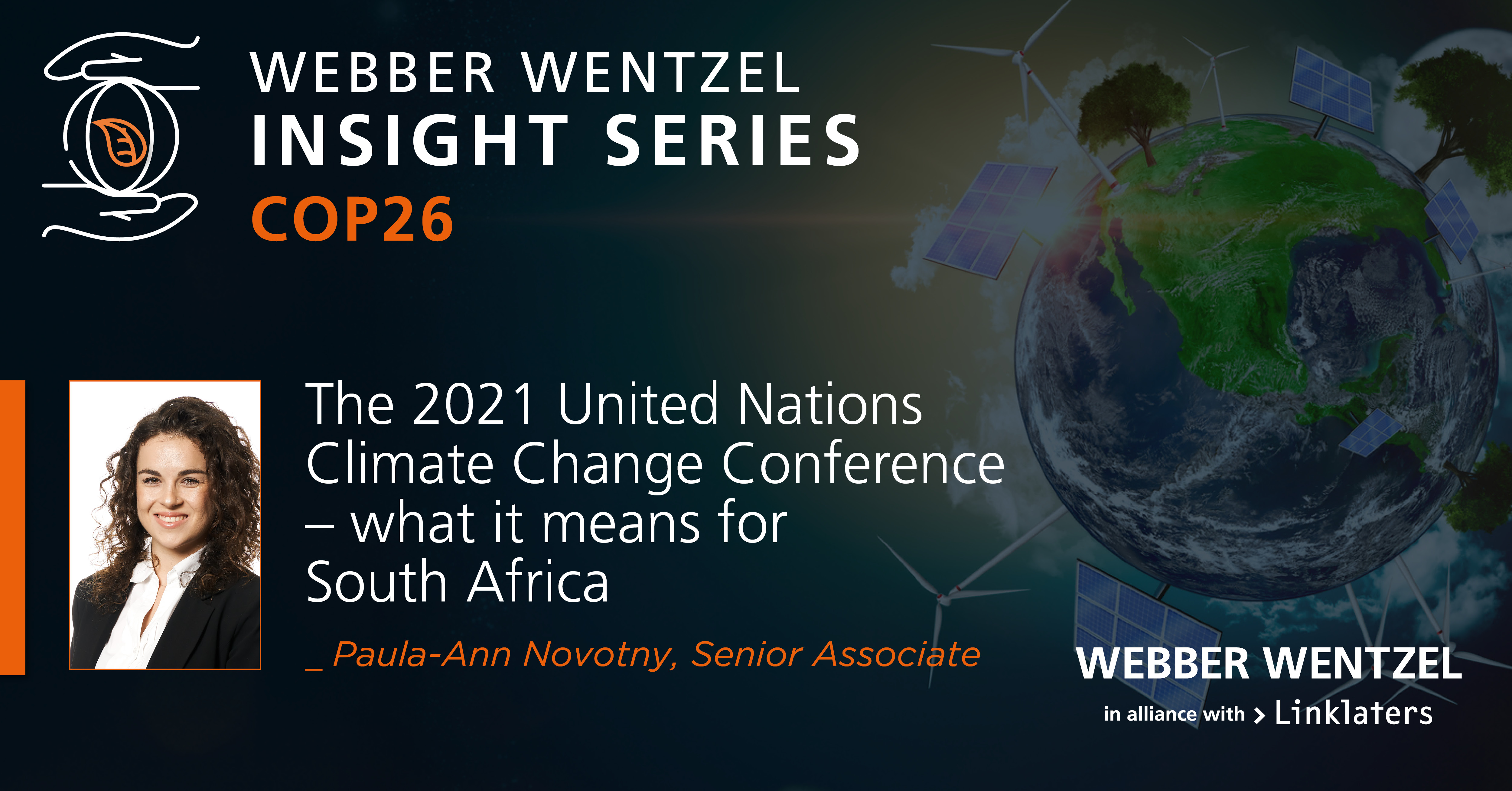At the United Nations climate change conference in Paris (COP21), governments agreed that mobilising stronger and more ambitious climate action is urgently required to achieve the goals of the Paris Agreement.
The Conference of the Parties (COP) is the supreme decision-making body of the United Nations Framework Convention on Climate Change (UNFCCC). All States that are Parties to the UNFCCC are represented at the COP. Its key task is to review the national communications and greenhouse gas (GHG) emission inventories submitted by Parties; assess the effects and effectiveness of the measures taken by Parties; and evaluate the progress made in achieving the ultimate objective of the UNFCCC – to keep global temperatures from increasing by more than 1.5˚C by 2030 and to reach net-zero by 2050. The annual COP seeks to work with all involved to increase
climate ambition, build resilience and lower emissions.
The historic Paris Agreement is the flagship instrument of the UNFCCC. This agreement formally acknowledges the urgent need to scale up our global response to climate change, which supports even greater ambition from governments. The Paris Agreement was signed by the UN member States / Parties in 2015 (at COP21), and was ratified by South Africa in 2016.
The Paris Agreement requires (among other things) that each Party should prepare, communicate and maintain five-yearly
nationally determined contributions (NDCs) that it intends to achieve to reduce national GHG emissions and adapt to the impacts of climate change. Together, these climate actions will determine whether the world achieves the long-term goals of the Paris Agreement.
South Africa deposited its first NDC with the UNFCCC in October 2015, committing to keeping national GHG emissions within a range of 389-614 Mt CO₂-eq (carbon dioxide equivalent) for 2025 and 2050.
In September 2021, Cabinet approved our revised NDCs, the Climate Change Bill and South Africa’s negotiating position for COP26. The country’s NDC target range for 2025 has been updated from its original 2015 value to a range of 398-510 Mt CO₂-eq for 2025. Of greater significance is our 2030 mitigation target range, which has been updated to a range of 350-420 Mt CO₂-eq. The top of the range of our revised NDC is consistent with the Paris Agreement's temperature limit of "well below two degrees", and the bottom of the range is consistent with the Paris Agreement's 1.5-degree temperature limit. South Africa has also brought forward the year in which emissions are due to decline, from 2035 in the initial NDCs to 2025 in the updated NDCs.
NGOs have cast doubt on our new NDCs, with the Centre for Environmental Rights indicating that, while the latest revised NDC target range is an important step forward for climate action in South Africa, only the lower limit of the range (of 350 Mt CO₂-eq) is consistent with South Africa’s fair share of GHG emissions for a 1.5°C global pathway. This leads to a material risk that our big emitters will see the upper limit of the new NDC range as an opportunity to delay the reduction of GHG emissions. Yet our country is warming at twice the global average, with South Africa ranking as the world's 14th largest emitter of GHGs (and highest emitter on the African continent). It is continuously being marred by litigation against our biggest industrial emitters and their attempts to postpone compliance with the reduced minimum emission standards prescribed by law.
According to government, the consultation process conducted in support of the updated NDCs indicated that current mitigation strategies in the
energy, transport and waste sectors together with
afforestation measures will allow us to achieve the upper range of the target.
But more ambitious achievement will require significant multilateral financial support and technological transfer.
The updated NDCs also contain South Africa's first Adaptation Communication, detailing the country's adaptation goals to be implemented via the recently-finalised National Climate Change Adaptation Strategy (NCCAS). The NCCAS outlines a set of objectives, interventions and outcomes to enable the country to give expression to its commitment to the Paris Agreement. It establishes a common reference point for climate change adaptation efforts in South Africa in the short to medium term, providing guidance across all levels of government, sectors, and stakeholders affected by climate variability and change.
The adoption of the Climate Change Bill as South Africa’s negotiating position for COP26 was a last-minute event, as the Bill, after its first publication in 2018, had rested in limbo until now. The tabling of the Climate Change Bill in the National Assembly will represent an important step forward in the development of our country’s architecture to manage and combat climate change, but it is debatable whether its implementation will become effective before at least 2023, given recent developments in the carbon tax and carbon budget space.
Following the international envoy visit to South Africa last week, it has become clear that the main driver behind South Africa's COP26 negotiating strategy is punting our policy developments to seek financial support from the developed countries. But South Africa will need to evidence that it has been effectively achieving its international commitments, or in the very least is capable of meeting them, in order to receive such support.
Legislative, policy and industry developments are gearing up to take centre stage on the climate change agenda. The COP26 UN Climate Change Conference will take place from 31 October to 12 November 2021 in Glasgow, UK. South Africa's negotiations at and participation in COP26 will define the paths that we take in pursuing climate action and the just transition.
Webber Wentzel will be publishing various insights on the COP26 conference discussions. Stay tuned to this COP26 Insight Series for more.
